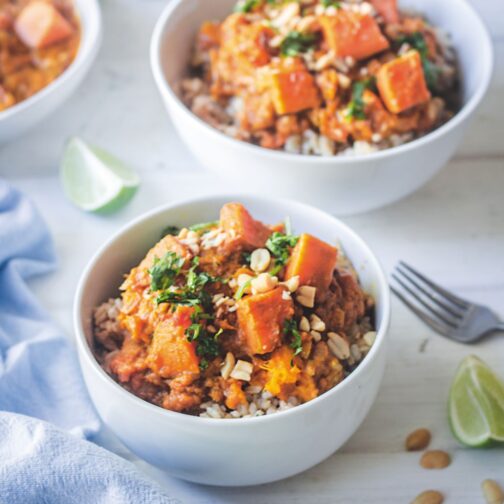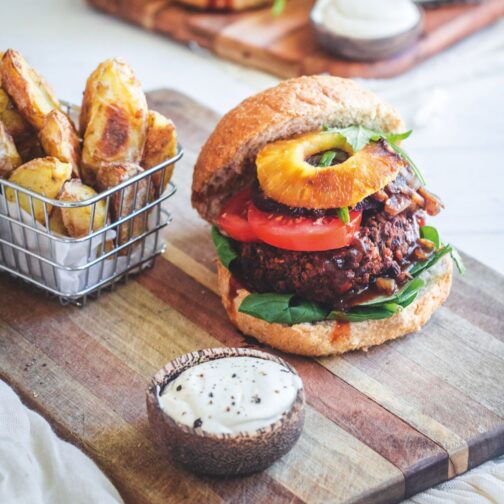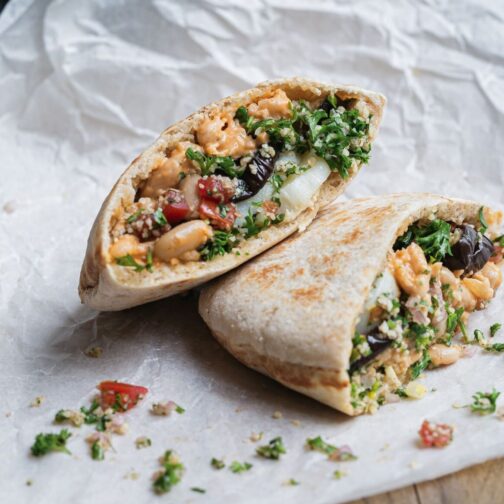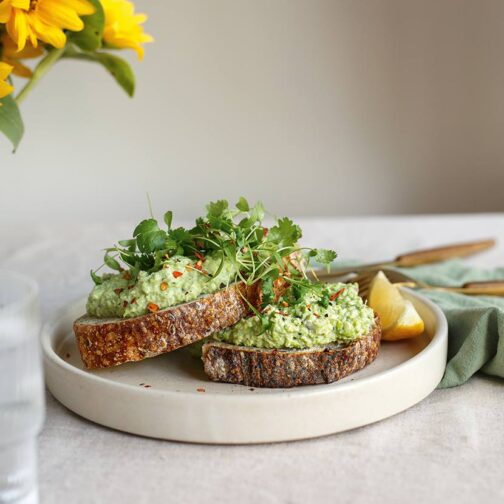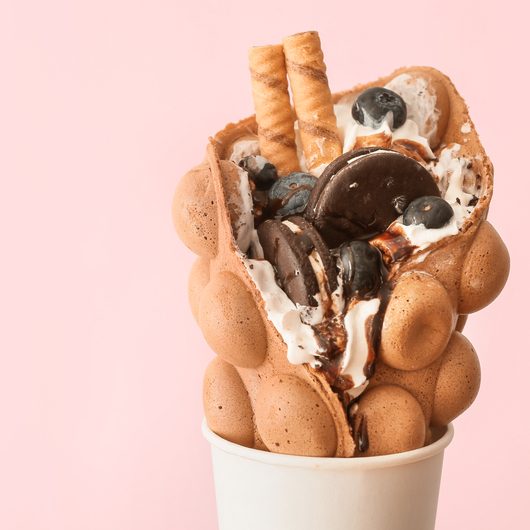
It’s time we stopped blaming black beans for the problems caused by jellybeans. Carbs are not bad, it’s the foods some of them come in.
Let’s talk about carbohydrates! Carbs have been demonised as unhealthy for too long, and it’s time we got the story straight so you can fuel your body in the healthiest way.
First, a small bit of biology. In order to function at our best, fight off unwanted stress, and stay alive, our cells need to produce energy. And the most efficient way our body generates this energy is via the Krebs cycle. The Krebs cycle depends upon a specific enzyme called Acetyl-CoA. While this enzyme can be produced in most cells from protein and fat, the body’s preferred way to produce this is by using glucose (a single carbohydrate molecule). Put simply, when our cells have the choice of using fats, proteins, or carbohydrates, most of them, including our brain cells, preferentially choose carbohydrates to produce energy.
This basic biology is universally accepted as fact, so why then do we still see people demonising carbohydrate-rich foods? How can they be our body’s primary fuel source and bad for us at the same time? That doesn’t make sense. To unpack this rhetoric, we have to go back 40 odd years.
Fat, redeemed?
There’s a school of thought that exists in certain diet circles that believes since we were told to eat less fat in the 1980s and we have since become increasingly fatter and more likely to develop chronic disease, the guidelines must have got it wrong. And while on face value this might seem like a logical conclusion, the data says otherwise.
The 1980 US dietary guidelines (which were largely used to inform guidelines in the rest of the Western world) encouraged people to lower their intake of foods high in fat, such as meat and dairy, with good reason – it was hoped this would lead to people lowering their saturated fat intake while increasing their consumption of health-promoting, low-fat foods such as fruits, vegetables, wholegrains, and legumes in order to lower their risk of chronic disease. Unfortunately, humans do not always do what they are advised to!
Today, it’s clear that our fat intake, in terms of grams per day, has stayed at essentially the same level while we have simultaneously increased our total energy intake by between 200–450 calories per day. The higher end of this, 450 calories, is almost equivalent to consuming a can of Coca-Cola and a McDonald’s cheeseburger on top of a typical day’s eating. It’s foods like these, along with others rich in heavily refined carbohydrates, that make up these increased calories. These foods often include desserts, pasta, tacos, and alcohol – foods that we know do not adequately satisfy our hunger. Unfortunately, it is misinterpretation of this data that has led to the demonisation of carbohydrates as a macronutrient group.
Not all carbs are equal
“While we should absolutely be limiting foods that are high in refined carbohydrates, we should not be afraid of unrefined carbohydrates.”
The problem with this is that not all carbohydrates are created equal. Carbohydrate is very much an umbrella term. So, instead of blaming black beans for the problems caused by jellybeans, we need to consider the differing health effects that refined and unrefined carbohydrates have on our health.
It’s true, ultra-processed foods rich in refined carbohydrates (found in foods stripped of most of their nutritional value, such as white flour) drive hedonic hunger – cravings for food without a physiological need for more energy. However, we also know that when high-quality high-carbohydrate diets are put head-to-head against high-quality low-carbohydrate diets, each formulated from unprocessed foods, neither diet is superior to the other when it comes to weight loss. This has been shown time and time again in different studies performed by researchers from across the globe.
While we should absolutely be limiting foods that are high in refined carbohydrates, we should not be afraid of unrefined carbohydrates. Unrefined carbohydrates are found in whole or minimally processed plant foods, such as fruits, vegetables, wholegrains, and legumes. These come packed with soluble fibre, insoluble fibre, resistant starch, vitamins, minerals, phytonutrients (such as polyphenols), and water, which all coalesce to promote good health and longevity. This is perhaps best exemplified by the Okinawans, an extremely healthy Japanese population known for having the most centenarians (people aged over 100) per 100,000 people in the world. They consume approximately 85 percent of their total daily calories from carbohydrates (mostly from purple sweet potatoes).
Good carb, bad carb
All of this is to say that, despite the confusion, we do not need to fear carbs. It’s not carbohydrates making people sick and overweight, it’s the foods some carbohydrates come in. Swap white bread for brown bread and white pasta for wholemeal pasta. Eat more legumes and fruit. And take it easy on cookies, cakes, biscuits, donuts, pizza, lollies, chocolate (unless it’s low sugar dark chocolate), and other foods that contain white flour or added sugar. According to the best science we have, making these changes will not only leave you feeling better in your day to day, but better for longer too.

![]()
REFINED CARBS TO AVOID
Refined carbs are found in processed foods, most commonly in the form of sugars and refined grains:
- White flour
- White bread
- White rice
- Pasta
- Snack foods
- Sweets
- Pastries
- Sugary drinks (including alcohol)
- Breakfast cereals
UNREFINED CARBS TO FUEL UP ON
Unrefined carbs are minimally processed and still contain the natural fibre of that food, so fuel up on:
- Legumes
- Beans
- Vegetables
- Potatoes (hot chippies not included!)
- Whole fruits
- Wholegrains
- Brown rice
- Quinoa
- Oats
![]()
This article is based on a topic in my book The Proof is in the Plants, along with everything else you need to know about plant-based health.




